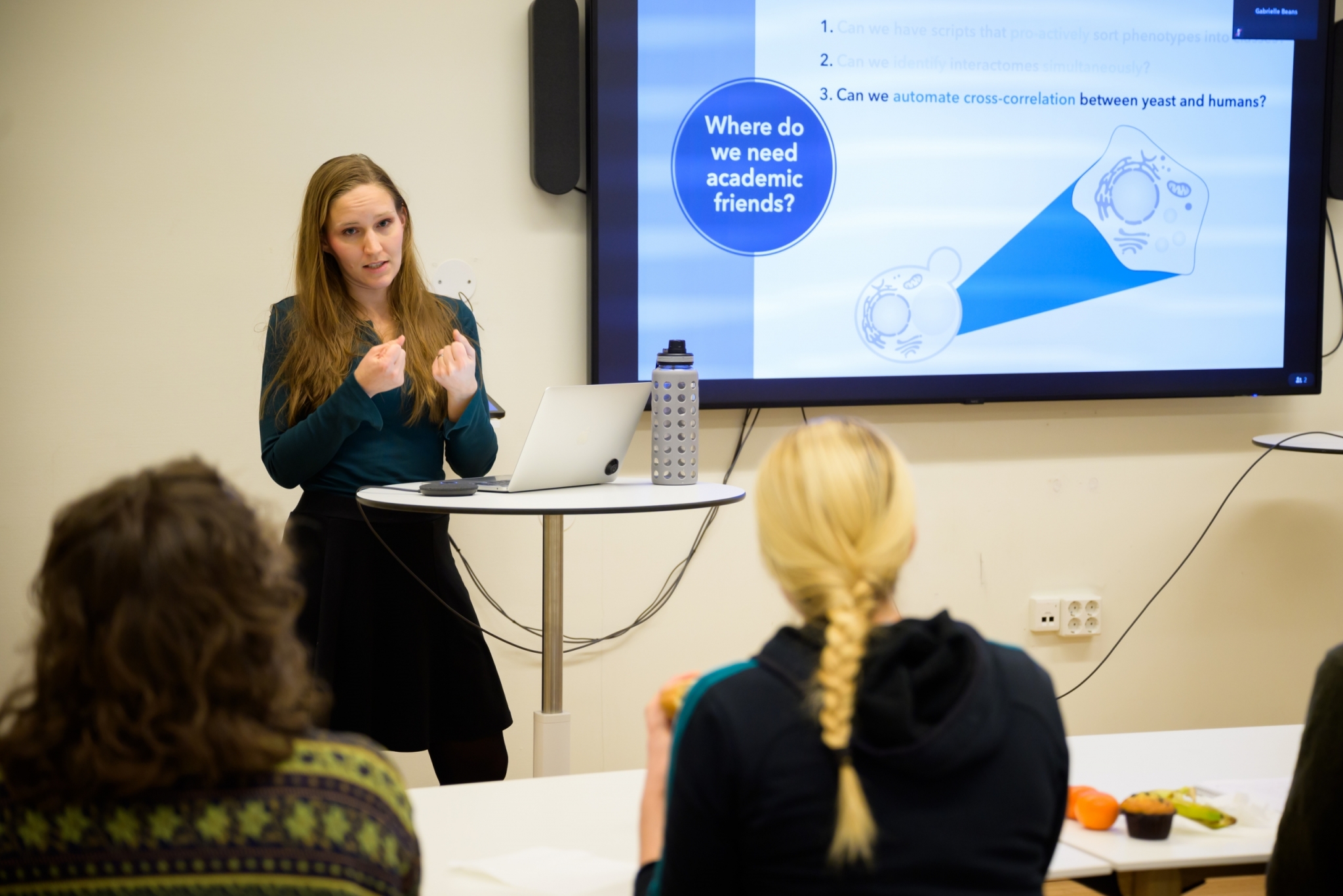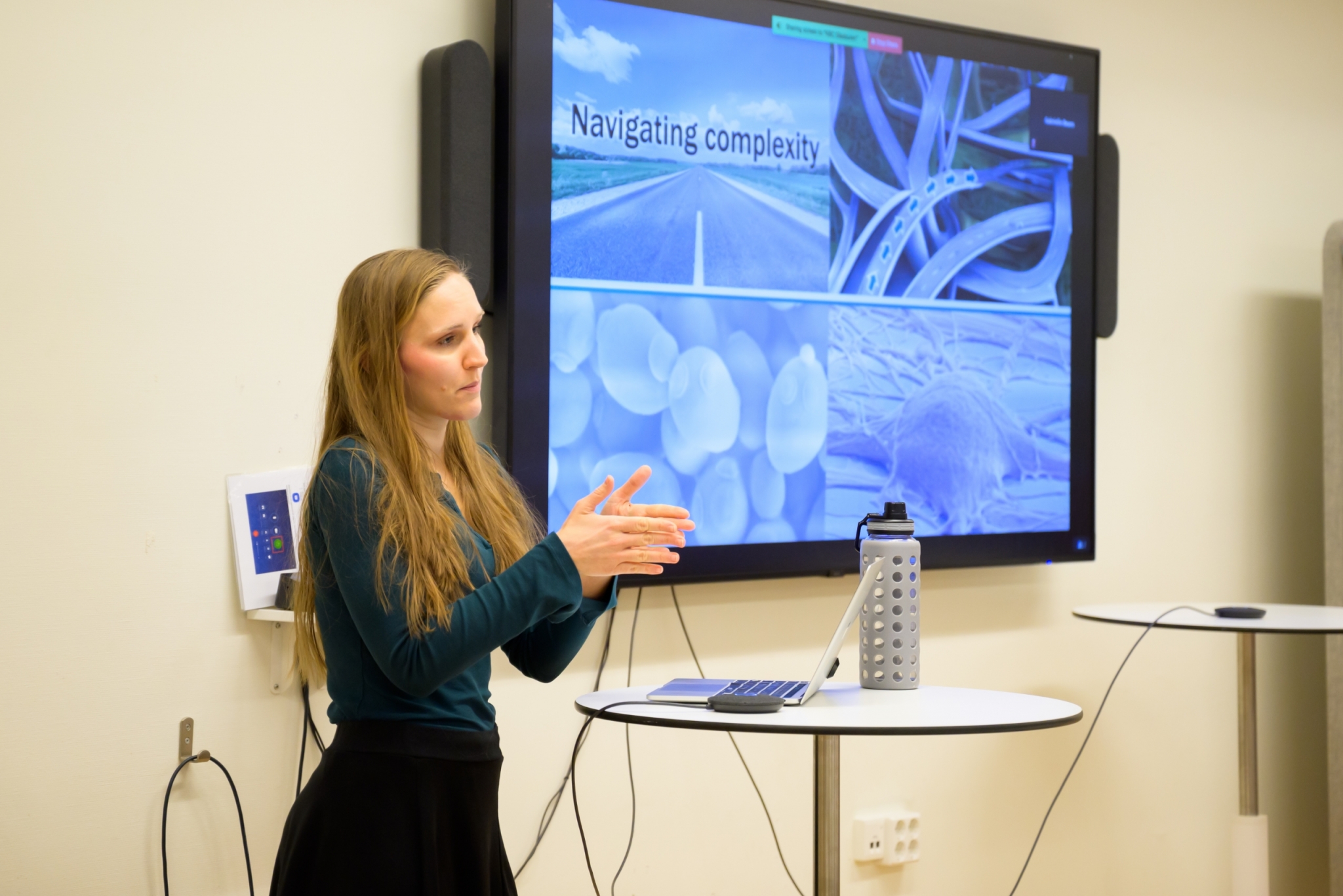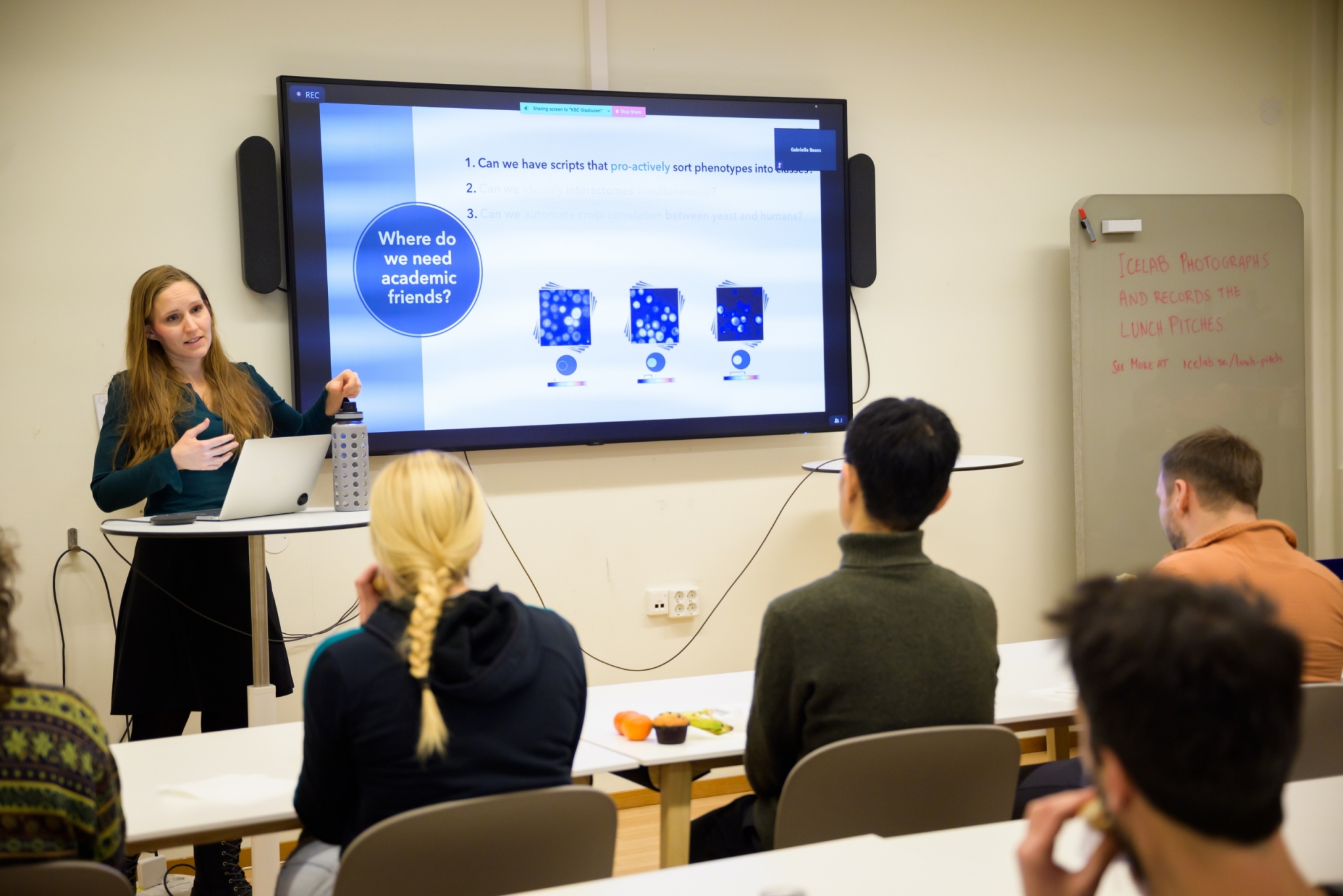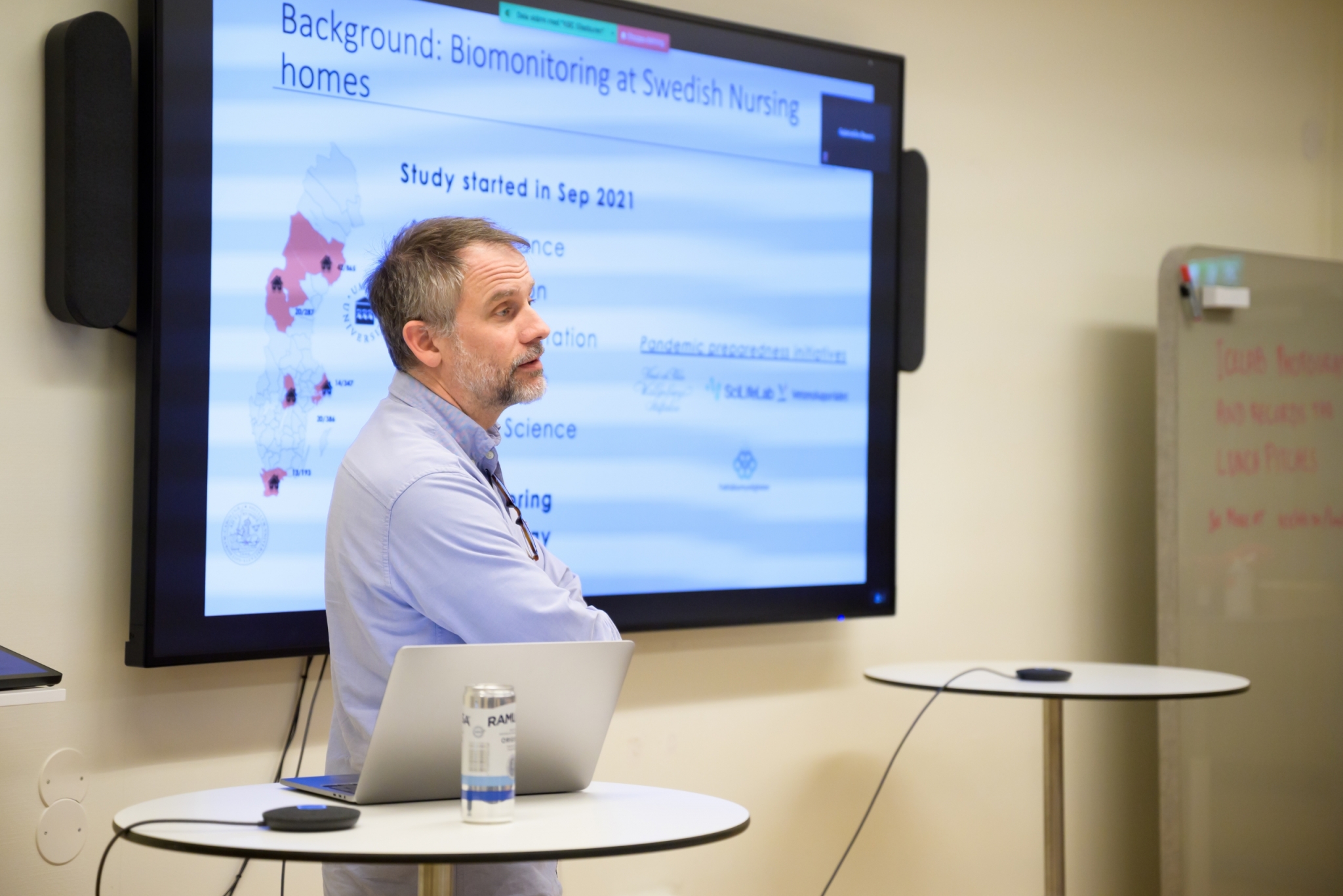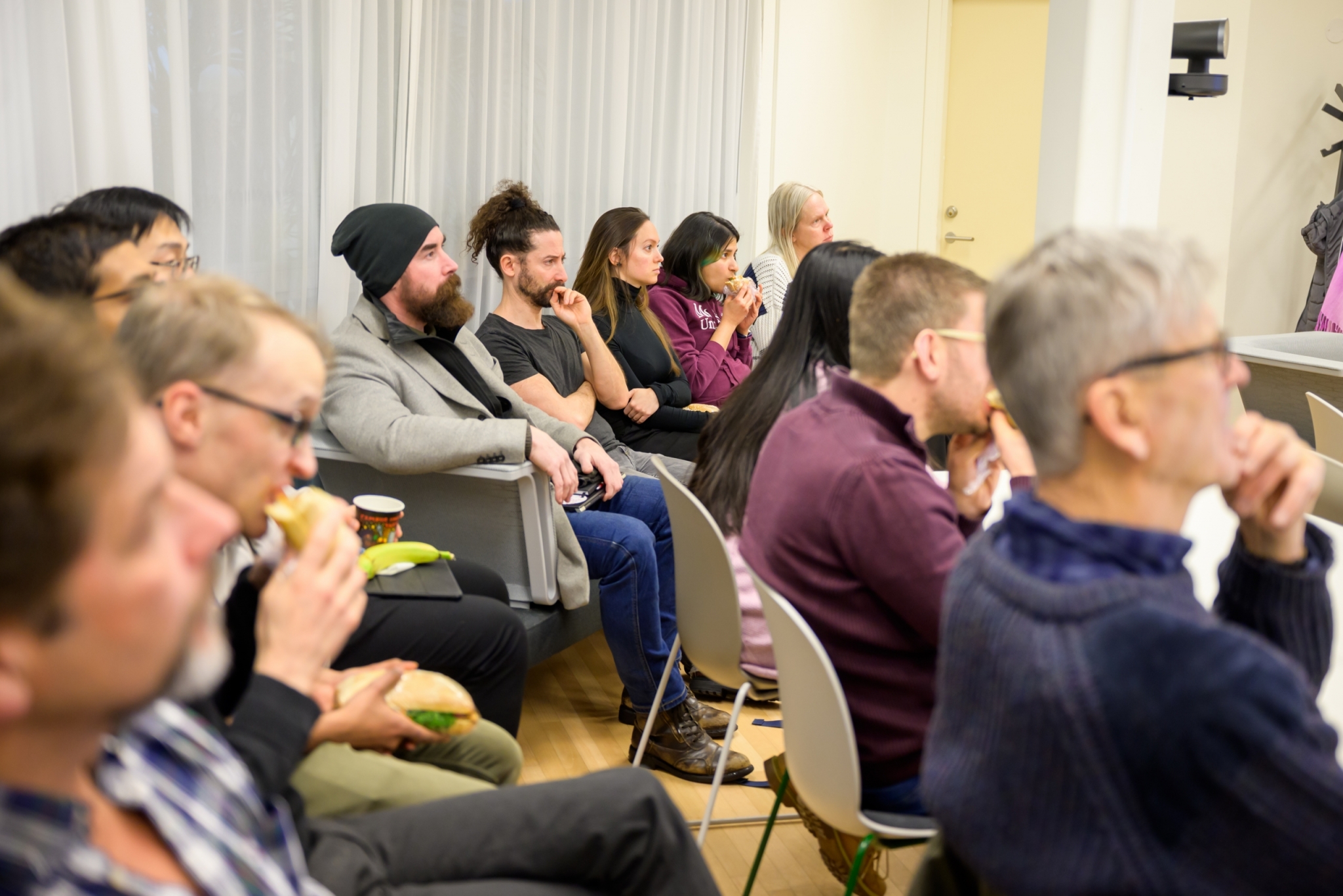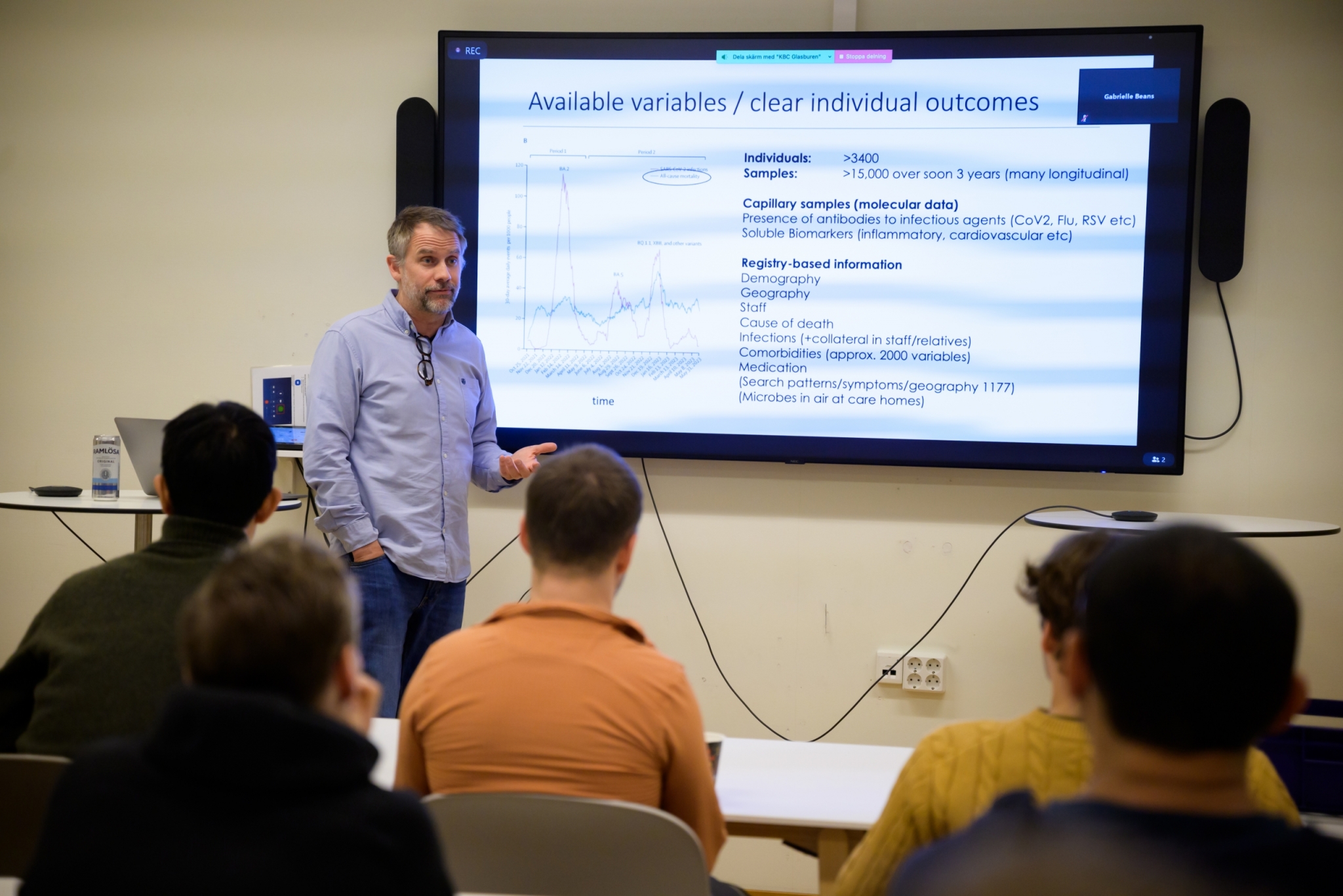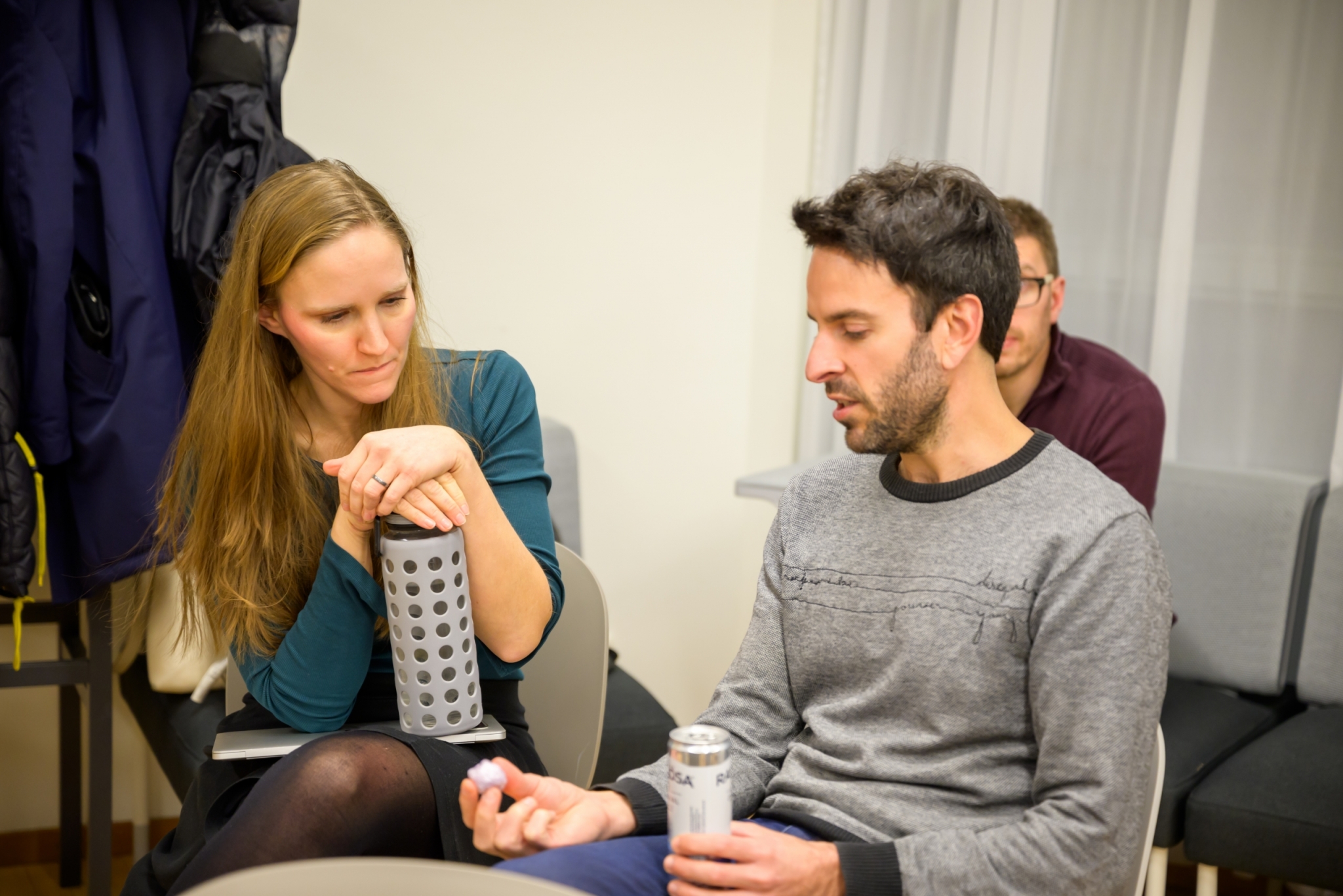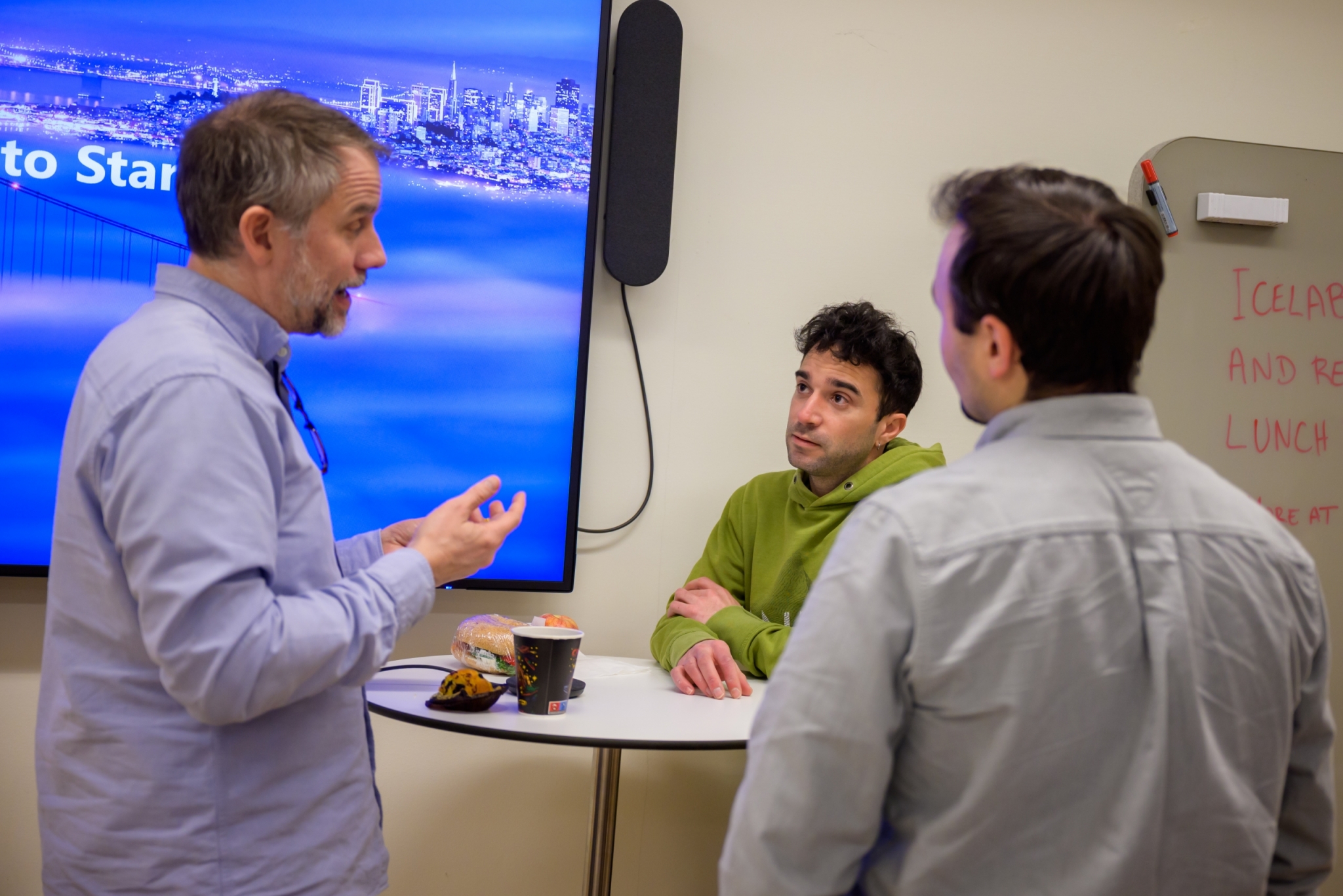February 14 Lunch Pitch: factors affecting lifespan
February 14, 2024
Pitch 1: Verena Kohler, Assistant Professor at Department of Molecular Biology.
The Ageing Chaperome: A New Perspective on Health and Disease
The research of Verena’s young group focuses on understanding how ageing affects the cellular chaperome. They are particularly interested in how communication between organelles, each harbouring their own subnetwork of folding factors, changes with age.
They are performing screening in yeast using high-end robotic handling systems to modernize traditional yeast ageing studies by incorporating high-throughput methodologies. Now, you might be wondering, why yeast? Good question! Yeast, specifically Saccharomyces cerevisiae, is an ideal model due to its short lifespan and high inter-species conservation. It allows us to understand the fundamentals before adding the complexity of higher organisms. But the journey does not stop at yeast. They are also applying what we learn to human cell lines, aiming to identify the key players in the cellular chaperome crucial at different life stages and to understand the communication pathways between different parts of this molecular network. To successfully transition to validation in human cell culture, they are undertaking bioinformatic cross-correlation approaches, considering high inter-species conservation but significantly fewer isoforms in yeast than higher eukaryotes.
But they don’t want to do it alone.
Interested in: Verena is looking for collaborators who can help develop sensors for mass spectrometry, introduce machine learning into the screen analysis, and explore automation of our cross-correlation approaches. So, if you’re up for a challenge and keen to unlock the secrets of the ageing chaperome, chat with Verena!
Pitch 2: Mattias Forsell, Professor at Department of Clinical Microbiology.
Understanding factors that may improve or decrease lifespan at old age
Professor, Department of Clinical Microbiology
Human aging is a strong predictor of death from infections or comorbidities. The Forsell / Johansson groups have been performing longitudinal biomonitoring on care homes for the elderly since late 2021. From this cohort of more than 3000 individuals, they have dissected the role of Covid-19 vaccination response for virus-associated mortality in the population (Vikström et al, Lancet RHE 2023 and Blom et al Lancet ID 2023). In addition to longitudinal data on immune responses to different vaccines and infections, they now have access to national registry data on comorbidities, mortality, reported infections, medication, staff, and geographical location of the participants. In addition, data on infections in staff and their relatives will be available. Their team currently lacks the capacity for state-of-the-art analysis of our large data sets, and they are looking for collaborations to elucidate risk factors that leads to increased or shortened life expectancy in old individuals.
Principal investigators: Mattias Forsell and Anders Johansson are Professors at Department of Clinical Microbiology and specialize in immunology or public health, respectively.
Interested in: finding collaborations to elucidate risk factors that lead to increased or shortened life expectancy in old individuals, using massive amounts of data from vaccination/infection on a population level.

